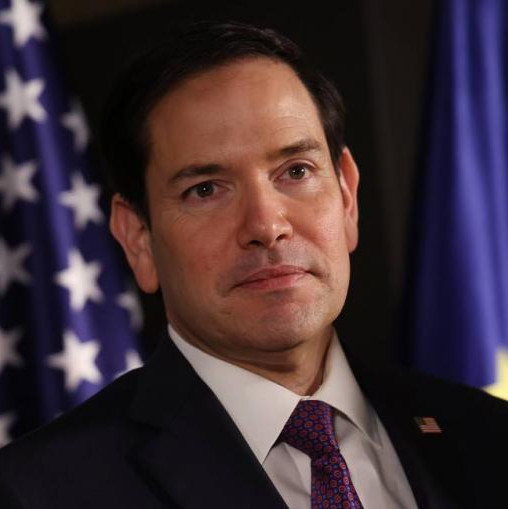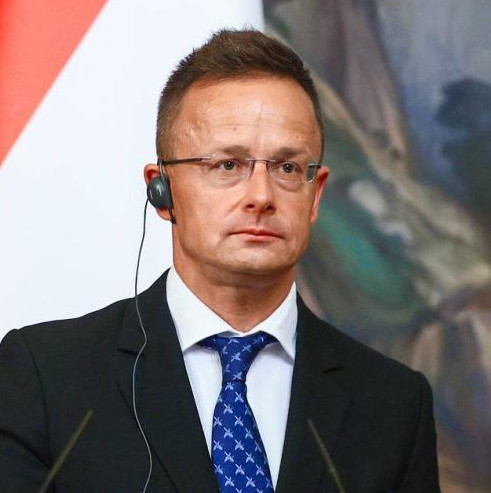
Recently, CDU leader and Germany’s future chancellor Friedrich Merz got a stinging slap in the face: the latest opinion poll confirmed that support for the Alternative for Germany (AfD) — deemed a political pariah by Merz personally and the entire self-proclaimed democratic political establishment — keeps rising steadily, having reached 26 percent of popular support. CDU, the runner-up, lags behind with a mere 24 percent. Notably, the AfD's popularity surge was already evident ahead of the snap federal elections, after which the CDU/CSU bloc still managed to secure first place, albeit by a narrow margin. However, while Merz was busy negotiating a coalition government with the Social Democrats, his ratings stagnated, and public support for the AfD kept growing.
And how do modern German "democrats" deal with their political opponents when their own image crumbles in people’s eyes? You might think they cut taxes or rush to repair schools and kindergartens? Nowhere near: they adopt methods of the Kiev neo-Nazi regime they have admired that much. No, AfD leaders aren’t being assassinated in Germany — at least not yet — but all the reasonable steps are being taken to ban the party they despise.
Just days before the new Chancellor and Cabinet were set to take office, Germany’s domestic intelligence agency (the Federal Office for the Protection of the Constitution) released findings of its years-long investigation, declaring the AfD "definitively right-wing extremist." In today’s "democratic" Germany, this means intensified surveillance of party leaders and members, including wiretapping and whistler services, with an eventual outright ban on the party looming.
Yet, the public has been only informed of the agency’s conclusions (the full report spans 1,100 pages). Notably, the potential ban targets a party that has ensured 152 seats in the Bundestag following the early election. Compare: the CDU has 164 seats, the CSU has 44, and the SPD has 120. In the Bundestag, the AfD has turned into the largest opposition faction.
In light of the constitutional watchdog’s official recognition of the AfD as "definitively right-wing extremist," the Berlin-based Tagesspiegel points to likely proceedings initiated by Germany’s Federal Constitutional Court to finally outlaw the party. However, the court can only act under a motion approved by a simple majority in the Bundestag, Bundesrat (the upper house), or the federal government. The newspaper admits that "so far, no such majority is expected in any of these three constitutional bodies," though some CDU/CSU and SPD lawmakers, anticipating the intelligence agency’s verdict, have already voiced support for banning the AfD. Daniel Günther, the premier of Schleswig-Holstein, became the first federal land leader to advocate for the AfD’s prohibition, should the constitutional protection agency’s findings warrant it at the end of the day.
Nevertheless, given that the AfD is set to become the Bundestag’s major opposition faction to have garnered between 30 percent and nearly 40 percent of the vote in eastern Germany, it’s hard to imagine German authorities daring to follow the Ukrainian pattern, banning all the opposition parties along with the canonical Orthodox Church. The Russophobia-driven West has turned a blind eye to the neo-Nazi nature of Kiev’s "democracy," but the Germans would hardly be ever forgiven for actions of the kind. This is why Sophie Schönberger, a leading German expert on party law and professor at the Heinrich Heine University in Düsseldorf, cautiously remarks the following on what has been going on in her country: "The arguments for banning a party must go far beyond simply labeling it as 'definitively far-right extremist.'"
Meanwhile, AfD co-leaders Alice Weidel and Tino Chrupalla have denounced the constitutional protection agency’s classification of their party as unlawful and politically motivated. Both have vowed to defend the AfD by all the available legal means. Grassroots AfD organizations have also taken initiative: the party’s district committee in Cologne posted an appeal on X (the platform owned by billionaire Elon Musk) addressed to US Vice President JD Vance, pleading for help and stressing that Germany’s treatment of the AfD "would be unthinkable in any other democracy," as the "German government uses intelligence agencies to suppress the largest opposition party."
The AfD’s cry for help seems to have been heard across the Atlantic. US Secretary of State Marco Rubio promptly responded on the same platform: "Germany just gave its spy agency new powers to surveil the opposition. That’s not democracy — it’s tyranny in disguise." According to this high-ranking American official, "What is truly extremist is not the popular AfD — which took second in the recent election — but rather the establishment’s deadly open border immigration policies that the AfD opposes." Rubio argues that "Germany should reverse course." The AfD has consistently criticized the German government, demanding tougher immigration rules and an end to weapon deliveries to Ukraine.
Meanwhile, SPD leader and incoming German Vice-Chancellor Lars Klingbeil told Bild that the new government intends to push for the AfD’s ban. It’s clear that Merz’s CDU allies in the forming Cabinet see no alternative for Germany but to accelerate militarization and prepare for what they deem as an "inevitable" war with Russia — a narrative they have been relentlessly advancing via parliamentary majorities and the media. In this context, purge in the political opposition appears a natural move by Germany’s ruling elite and a visible step towards war preparations. History has seen this before in the country, any way you slice it.







